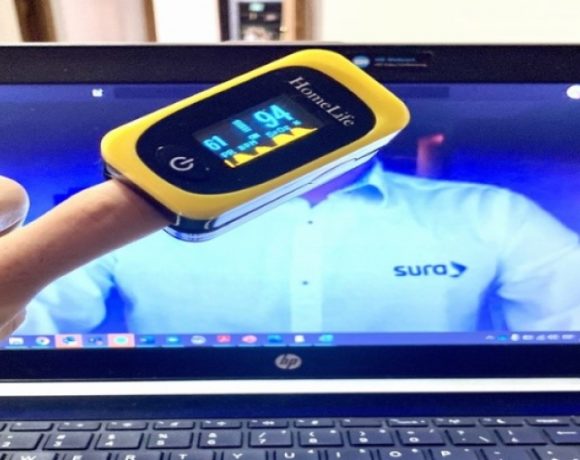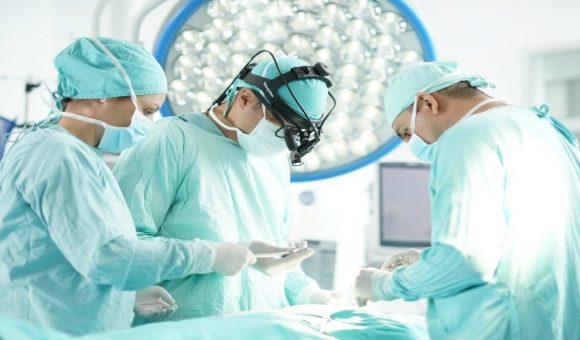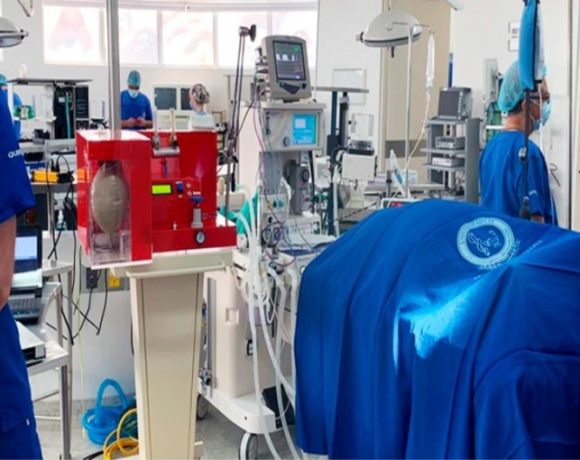Covid-19: Antioquia Passes 100,000-Cases Mark Today; Science Study Shows Face Masks Even-More Useful for Disease Prevention, Symptoms Moderation

With the Antioquia departmental government on September 16 reporting a cumulative total of 99,632 cases of Covid-19, including 2,124 total deaths and an average of more than 1,000 new cases daily — mainly in Medellin and Valle de Aburra — Antioquia today (September 17) will surpass the 100,000-cases marker.
However, there’s startling good news on the prevention front: a new study by the prestigious, peer-reviewed New England Journal of Medicine shows that populated areas employing face-mask mandates are drastically reducing Covid-19 outbreaks — and not only helping to prevent spread of the disease, but also helping to protect the very people wearing the masks.
Colombia Health Minister Fernando Ruiz cited the new study in a September 16 nationally televised address updating the Covid-19 situation here.
The New England Journal of Medicine study (see: https://www.nejm.org/doi/full/10.1056/NEJMp2026913) found that people wearing face masks and mingling with asymptomatic persons infected with Covid-19 can ingest relatively small amounts of airborne Covid-19 virus particles.
Unlike the dangerous uptake of relatively large amounts of virus particles – mainly occurring in groups of people not wearing masks and not socially distancing – the uptake of small amounts of Covid-19 droplets through a mask can actually generate beneficial immunity against Covid-19, the study shows.
“This explains a lot the situation of countries in Asia, which have a low rate of contagion despite being very open [to industry, commerce and travel], and this is what we hope will happen in Colombia,” Minister Ruiz said.
Thanks to widespread adoption of face-mask-wearing here in Colombia, Covid-19 cases are “in a phase of decline in most cities, impacted by reductions in Bogotá, Medellín and Cali, with an indicator of 190 deaths reported daily,” according to latest Ministry statistics.
Similarly, “occupation of Intensive Care Units [ICUs] has also been decreasing, at a little slower rate, but [still] an effective reduction. The most recent data show 2,233 Covid-19 patients were in ICUs, an indicator that has been achieved on average over the last four to six weeks,” according to the Ministry.
Key Excerpts from Journal of Medicine Study
Below we reproduce key findings of the latest New England Journal of Medicine study, published September 6, 2020:
“Universal facial masking seemed to be a possible way to prevent transmission [of Covid-19] from asymptomatic infected people. The Centers for Disease Control and Prevention (CDC) therefore recommended on April 3 that the public wear cloth face coverings in areas with high rates of community transmission — a recommendation that has been unevenly followed across the United States.
“Past evidence related to other respiratory viruses indicates that facial masking can also protect the wearer from becoming infected, by blocking viral particles from entering the nose and mouth.
“Epidemiologic investigations conducted around the world — especially in Asian countries that became accustomed to population-wide masking during the 2003 SARS pandemic — have suggested that there is a strong relationship between public masking and pandemic control.
“Recent data from Boston demonstrate that SARS-CoV-2 infections decreased among health care workers after universal masking was implemented in municipal hospitals in late March.
“SARS-CoV-2 has the protean ability to cause myriad clinical manifestations, ranging from a complete lack of symptoms to pneumonia, acute respiratory distress syndrome, and death. Recent virologic, epidemiologic, and ecologic data have led to the hypothesis that facial masking may also reduce the severity of disease among people who do become infected.
“This possibility is consistent with a long-standing theory of viral pathogenesis, which holds that the severity of disease is proportionate to the viral inoculum received.
“Since 1938, researchers have explored, primarily in animal models, the concept of the lethal dose of a virus — or the dose at which 50% of exposed hosts die (LD50). With viral infections in which host immune responses play a predominant role in viral pathogenesis, such as SARS-CoV-2, high doses of viral inoculum can overwhelm and dysregulate innate immune defenses, increasing the severity of disease.
“Indeed, down-regulating immunopathology is one mechanism by which dexamethasone improves outcomes in severe Covid-19 infection. As proof of concept of viral inocula influencing disease manifestations, higher doses of administered virus led to more severe manifestations of Covid-19 in a Syrian hamster model of SARS-CoV-2 infection.
“If the viral inoculum matters in determining the severity of SARS-CoV-2 infection, an additional hypothesized reason for wearing facial masks would be to reduce the viral inoculum to which the wearer is exposed and the subsequent clinical impact of the disease.
“Since masks can filter out some virus-containing droplets (with filtering capacity determined by mask type), masking might reduce the inoculum that an exposed person inhales. If this theory bears out, [then] population-wide masking, with any type of mask that increases acceptability and adherence, might contribute to increasing the proportion of SARS-CoV-2 infections that are asymptomatic.
“The typical rate of asymptomatic infection with SARS-CoV-2 was estimated to be 40% by the CDC in mid-July, but asymptomatic infection rates are reported to be higher than 80% in settings with universal facial masking, which provides observational evidence for this hypothesis.
“Countries that have adopted population-wide masking have fared better in terms of rates of severe Covid-related illnesses and death, which, in environments with limited testing, suggests a shift from symptomatic to asymptomatic infections.
“Another experiment in the Syrian hamster model simulated surgical masking of the animals and showed that with simulated masking, hamsters were less likely to get infected, and if they did get infected, they either were asymptomatic or had milder symptoms than unmasked hamsters.
“The most obvious way to spare society the devastating effects of Covid-19 is to promote measures to reduce both transmission and severity of illness.
“But SARS-CoV-2 is highly transmissible, cannot be contained by syndromic-based surveillance alone, and is proving difficult to eradicate, even in regions that implemented strict initial control measures. Efforts to increase testing and containment in the United States have been ongoing and variably successful, owing in part to the recent increase in demand for testing.
“The hopes for vaccines are pinned not just on infection prevention: most vaccine trials include a secondary outcome of decreasing the severity of illness, since increasing the proportion of cases in which disease is mild or asymptomatic would be a public health victory.
“Universal masking seems to reduce the rate of new infections; we hypothesize that by reducing the viral inoculum, it would also increase the proportion of infected people who remain asymptomatic,” the study concludes.
















